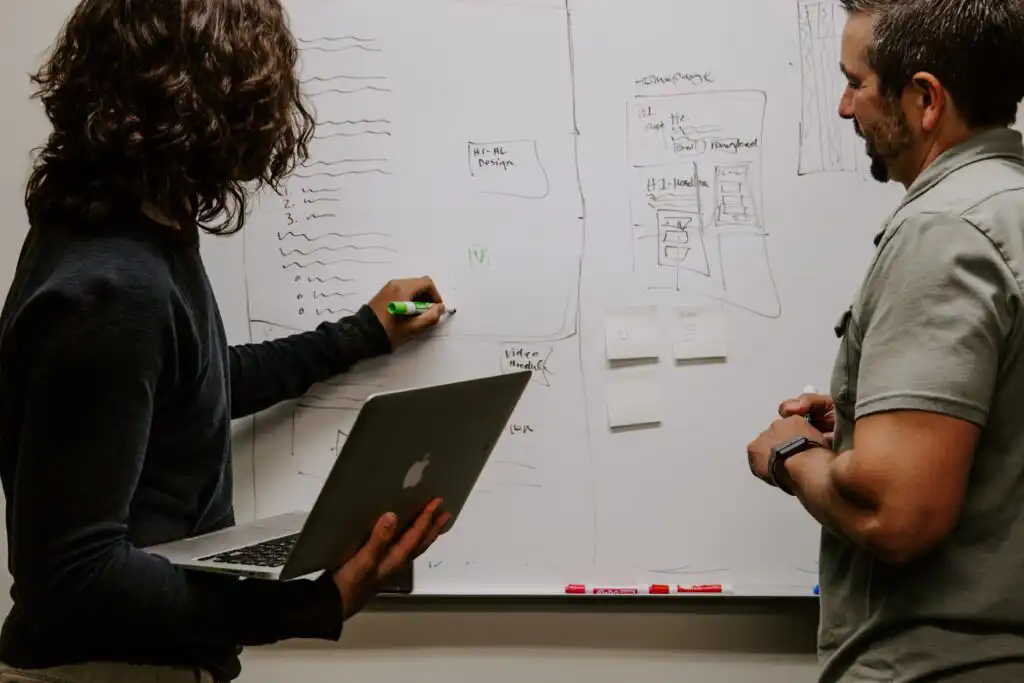What is business development? Business development is the creation and implementation of strategies that grow business. These strategies increase your customer list and revenue. Business development starts by looking at your current sales process. After doing market research, it restructures the process. Business development turns your business into a personable friend. It can be a lot of work, but it can have big effects. Think about it. Are you more likely to buy from some random salesperson? Or are you more likely to buy from a trustworthy friend with real solutions? Business development can be very rewarding. It can boost customer acquisition and loyalty.
What role does business development play in the company?
Think of business development and sales as sisters. They are not the same department, but they have a lot of things in common. These two departments have similar goals, but different responsibilities. Business development goes deeper than having sales representatives make calls. It looks at the whole sales process from start to finish, and even past that. Their job is to find new potential clients, convert more leads, and help grow the business. Business development and marketing are also similar, but not the same. There is some overlap in the departments, but in the end of the day they have different focuses. It is likely that these three teams will work closely together.
If you decide that business development is the right path for your company, you will need a business development representative. You could hire a consultant or full-time employee. They will usually report directly to the sales manager. If that is too costly, you could see if one of your sales reps would be a good fit. You might even be able to build a group from your existing sales and marketing departments. They could work together part of the week to build and identify business development strategies. Having a mixture of sales and marketing would make the process easier. They will both have strengths and information that can help the process.
Your business development representative(s) will find leads that are more likely to become customers. They will find leads that are more likely to spend more with your company. Instead of acting like a salesperson and talking about the product, they will focus on the potential clients’ needs and struggles. Knowing that information helps identify opportunities. These opportunities should create a mutual benefit for both businesses. Instead of fishing for customers and hoping one bites, business development representatives try to fix customer’s unique issues. They do this by using the tools that their company offers. Business development reps build strong relationships with customers. This helps promote customer loyalty down the road. Along with this, they also keep an eye on competition and stay current on market trends.
How to create a business development plan
Do you want to know how to create a business development plan? Get started here. Having a plan will really help the entire process. It can help you set clear goals and then take small steps to achieve them. When you have a business development plan, you have a map of the full sales process. This streamlines processes and simplifies work. There are a few steps you want to include when creating your business development strategies.
Start creating your business development plan by doing a SWOT analysis. A SWOT analysis looks at your company’s strengths, weaknesses, opportunities, and threats. This analysis looks internally at the company and externally at the market. This will inform you of what things you are doing well so that you can reinforce them. It also allows you to see areas of improvement. Determine who is working on the team and align them in such a way that highlights their strengths. Determine what resources the team can access.
From there, you can set a game plan. Set realistic goals that allow your representative(s) to work closely with potential customers through the week. Now is also the time to determine a budget for this department. Like anything, you can adjust it as time goes on and you learn more information. Part of any good plan includes follow up and reporting. You will want to measure your company growth. Look at things like how many more deals you are closing, how your revenue is changing, if your company is growing, and more. Look at customer satisfaction, value, and reach.
Common business development strategies
Now that we have talked about what business development is, how it fits in within your company, and what the process is, we can finally talk about common strategies. Different strategies work for different businesses. Every company is unique. Finding what works for your business will take time, research, and trial and error.
Focus more on networking and building relationships. Once you have done your research on a company, you want to build a relationship with them. Meet businesses in-person at tradeshows or events. Get to know their representatives. Meet them and talk with them like people, rather than a business. Nurture your relationship with potential customers. You can do this by calling them, sending an email, or scheduling a meeting. This allows you to stay in touch with them. If they allow it, send them content from your business. Send them the blogs and videos your company produces. This will help them become more familiar with the team and the company culture. It really humanizes your business.
More than anything, focus on what you can do for them. Pick their brain and learn about what issues they are facing. Once you know, use that information, and offer a solution for their needs. Hold a product demonstration for potential customers. You might provide a free consultation or even a free tester sample. Include promotional material with information on the product or service. Hand it to them as a printed piece of paper or email it to them. This experience helps show them if they want to go forward with a purchase. Work with your marketing and product development teams to create an engaging experience.
Business development can be costly and time-consuming, but it is worth it. Not sure if business development really works? Think about it for a moment. As we mentioned at the start, would you be more likely to buy from a random pushy salesman or a trusted friend? Building these relationships with customers not only increases the chance of closing sales. It also improves your relationship with customers. It can increase brand loyalty and the chance of repeat customers down the road.
Renee McBride


